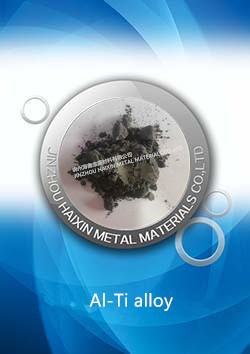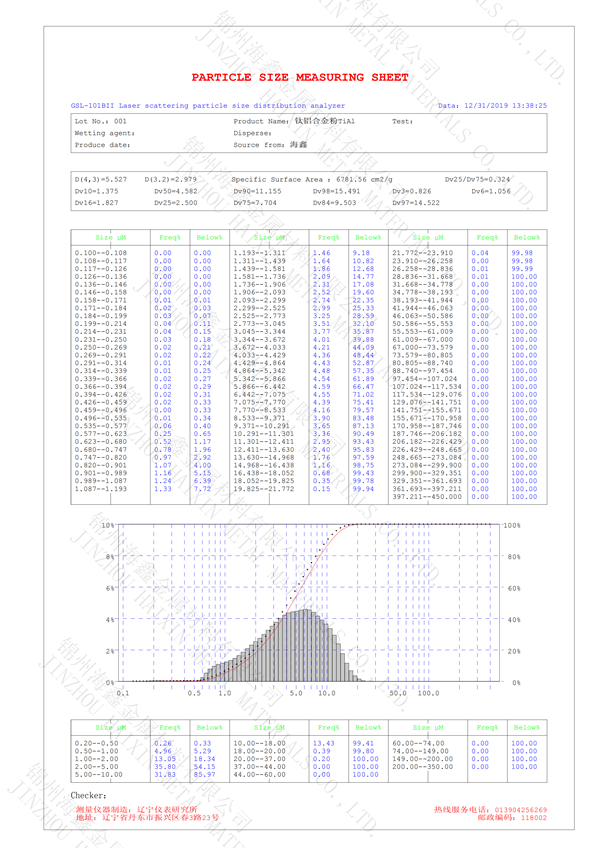Aluminum titanium alloy(Al-Ti)

.jpg)

.jpg)

.jpg)


Properties of titanium and aluminum:
Titanium alloy is silver-white metal, which has many excellent properties. At 4.54g/cm3,
titanium is 43% lighter than steel and slightly heavier than magnesium, the famed light
metal. The mechanical strength is about the same as steel, twice as strong as aluminum
and five times stronger than magnesium. Titanium is high temperature resistant, melting
point 1942K, higher than gold nearly 1000K, higher than steel nearly 500K.
Therefore, it has attracted extensive attention and become the focus of research on earale
alloy.
The basic alloy has good physical and mechanical properties and has obvious advantages
over ordinary titanium alloys and superalloys. The properties of Ti-Al intermetallic compounds
are higher than Ti alloys in all aspects, which is of great significance for aeronautical materials.
Due to the effect of covalent bond, diffusion-related high-temperature properties, such as creep,
durable strength and fracture toughness, can be improved. At the same time, it has excellent
high-temperature oxidation resistance and corrosion resistance, so it is a high temperature
structural material with great potential.
Use of titanium and aluminum:
Titanium alloy is also widely used in vacuum coating industry. It can be made into a certain
proportion of alloy target material as raw material for magnetron sputtering coating. In the
process of making vacuum coating target materials, titanium aluminum alloy has a variety
of component ratios, commonly used titanium aluminum atom ratio (at%) : 90:10, 80:20,
70:30, 50:50, 30:70, 20:80, 10:90. Titanium aluminum alloy can be produced by vacuum
casting when the content of titanium atom is greater than or equal to 50%. When the content
of titanium decreases and the content of aluminum increases, it can only be produced by
powder metallurgy to meet the requirements of target materials. When the titanium atoms
are greater than or equal to 80%, the titanium alloy can also be forged and rolled.

